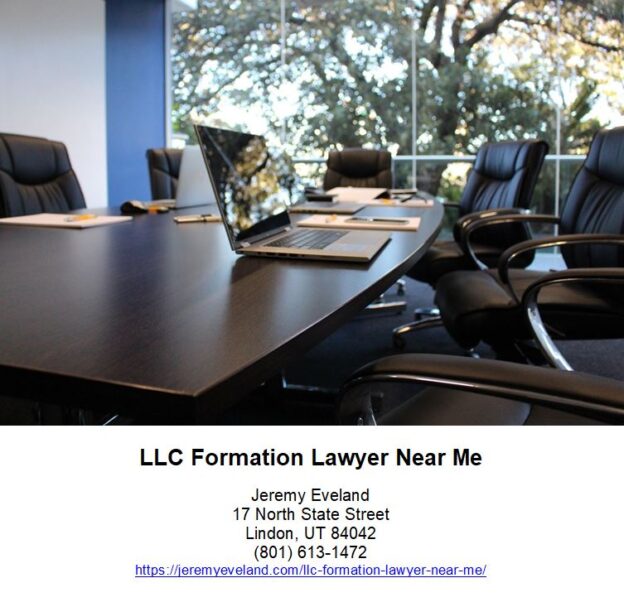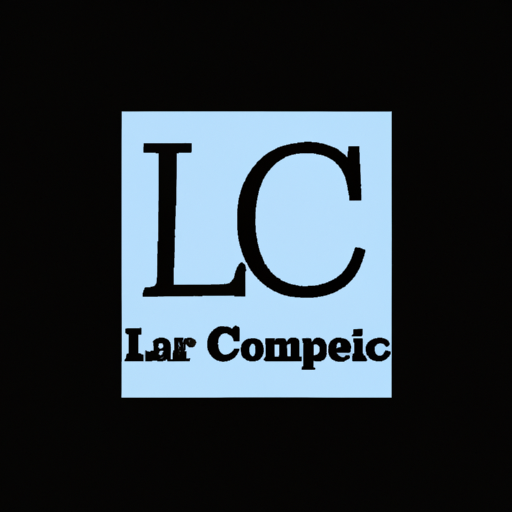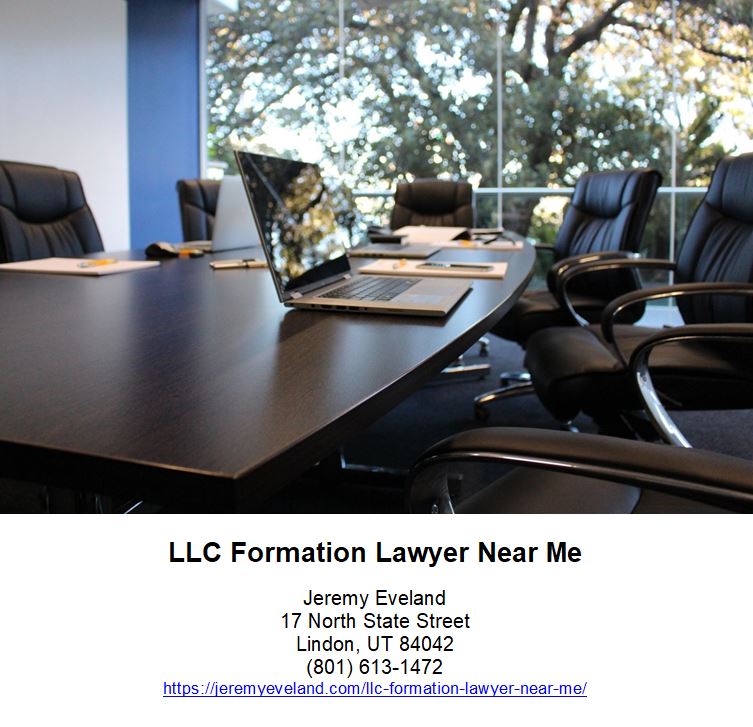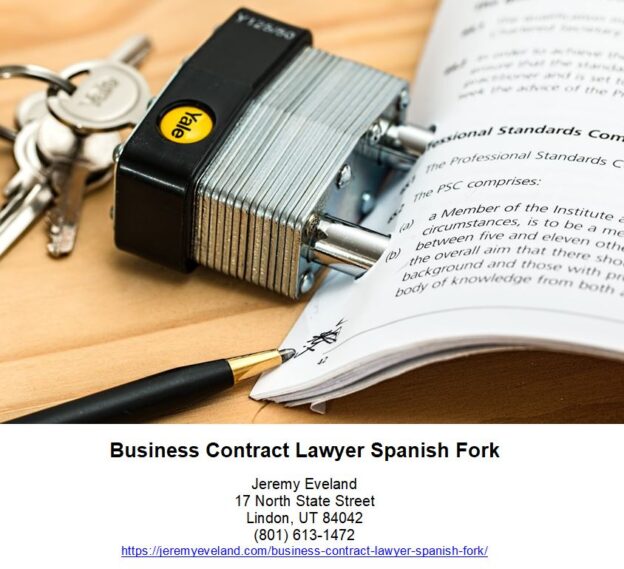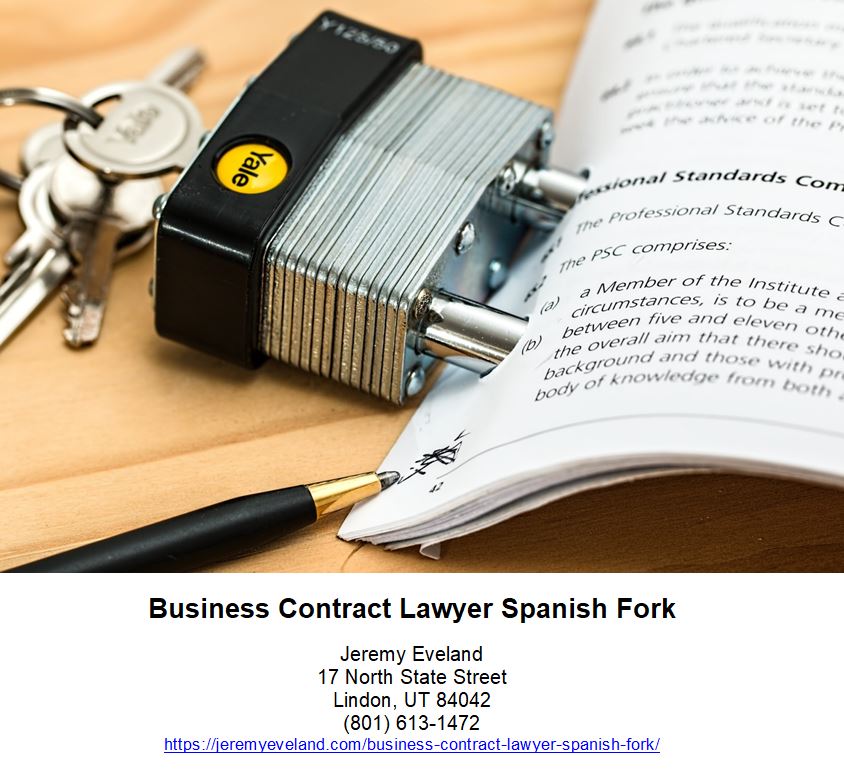-
Attorney at Law
“Unlock the Power of Utah Code 48-3a-409 – Protect Your Rights!”
Introduction
Utah Code 48-3a-409 is a section of the Utah Code that outlines the rights and responsibilities of landlords and tenants in the state of Utah. This code section provides guidance on topics such as the landlord’s right to enter the rental property, the tenant’s right to privacy, the tenant’s right to receive a written notice before the landlord can enter the rental property, and the tenant’s right to receive a written notice before the landlord can increase the rent. This code section also outlines the landlord’s responsibility to maintain the rental property in a safe and habitable condition, the tenant’s responsibility to pay rent on time, and the tenant’s responsibility to comply with all applicable laws.
Exploring the Legal Implications of Utah Code 48-3a-409
Utah Code 48-3a-409 outlines the legal implications of a landlord’s failure to provide a tenant with a written rental agreement. According to the code, if a landlord fails to provide a tenant with a written rental agreement, the tenant is entitled to certain rights and protections.
First, the tenant is entitled to a written rental agreement that includes the terms of the tenancy, including the amount of rent, the length of the tenancy, and any other terms agreed upon by the landlord and tenant. The written rental agreement must also include a statement that the tenant has the right to receive a copy of the agreement.
Second, the tenant is entitled to a written notice from the landlord that outlines the tenant’s rights and responsibilities under the rental agreement. This notice must be provided to the tenant at least 30 days prior to the start of the tenancy.
Third, the tenant is entitled to a written notice from the landlord that outlines the tenant’s right to terminate the tenancy. This notice must be provided to the tenant at least 30 days prior to the termination of the tenancy.
Fourth, the tenant is entitled to a written notice from the landlord that outlines the tenant’s right to receive a refund of any security deposit paid to the landlord. This notice must be provided to the tenant at least 30 days prior to the termination of the tenancy.
Finally, the tenant is entitled to a written notice from the landlord that outlines the tenant’s right to receive a written statement of any damages to the rental property that were caused by the tenant. This notice must be provided to the tenant at least 30 days prior to the termination of the tenancy.
Here is the code section:
“48-3a-409. Standards of conduct for members and managers.
(1) A member of a member-managed limited liability company owes to the limited liability company and, subject to Subsection 48-3a-801(1), the other members the duties of loyalty and care stated in Subsections (2) and (3).
(2) The duty of loyalty of a member in a member-managed limited liability company includes the duties:
(a) to account to the limited liability company and to hold as trustee for it any property, profit, or benefit derived by the member:
(i) in the conduct or winding up of the limited liability company’s activities and affairs;
(ii) from a use by the member of the limited liability company’s property; or
(iii) from the appropriation of a limited liability company opportunity;
(b) to refrain from dealing with the limited liability company in the conduct or winding up of the limited liability company’s activities and affairs as or on behalf of a person having an interest adverse to the limited liability company; and
(c) to refrain from competing with the limited liability company in the conduct of the company’s activities and affairs before the dissolution of the limited liability company.
(3) The duty of care of a member of a member-managed limited liability company in the conduct or winding up of the limited liability company’s activities and affairs is to refrain from engaging in grossly negligent or reckless conduct, intentional misconduct, or a knowing violation of law.
(4) A member shall discharge the duties and obligations under this chapter or under the operating agreement and exercise any rights consistently with the contractual obligation of good faith and fair dealing.
(5) A member does not violate a duty or obligation under this chapter or under the operating agreement solely because the member’s conduct furthers the member’s own interest.
(6) All the members of a member-managed limited liability company or a manager-managed limited liability company may authorize or ratify, after full disclosure of all material facts, a specific act or transaction that otherwise would violate the duty of loyalty.
(7) It is a defense to a claim under Subsection (2)(b) and any comparable claim in equity or at common law that the transaction was fair to the limited liability company.
(8) If, as permitted by Subsection (6) or (9)(f) or the operating agreement, a member enters into a transaction with the limited liability company which otherwise would be prohibited by Subsection (2)(b), the member’s rights and obligations arising from the transaction are the same as those of a person that is not a member.
(9) In a manager-managed limited liability company, the following rules apply:
(a) Subsections (1), (2), (3), and (7) apply to the manager or managers and not the members.
(b) The duty stated under Subsection (2)(c) continues until winding up is completed.
(c) Subsection (4) applies to managers and members.
(d) Subsection (5) applies only to members.
(e) The power to ratify under Subsection (6) applies only to the members.
(f) Subject to Subsection (4), a member does not have any duty to the limited liability company or to any other member solely by reason of being a member.
Enacted by Chapter 412, 2013 General Session”
In summary, Utah Code 48-3a-409 outlines the legal implications of a landlord’s failure to provide a tenant with a written rental agreement. The code states that if a landlord fails to provide a tenant with a written rental agreement, the tenant is entitled to certain rights and protections, including the right to receive a written rental agreement, a written notice outlining the tenant’s rights and responsibilities, a written notice outlining the tenant’s right to terminate the tenancy, a written notice outlining the tenant’s right to receive a refund of any security deposit paid to the landlord, and a written notice outlining the tenant’s right to receive a written statement of any damages to the rental property that were caused by the tenant.
How Utah Code 48-3a-409 Impacts Businesses in the State
Utah Code 48-3a-409 is a law that impacts businesses in the state of Utah. This law requires businesses to provide a safe and healthy work environment for their employees. It outlines the responsibilities of employers to ensure that their employees are not exposed to hazardous conditions or materials.
The law requires employers to provide a safe workplace by taking steps to prevent and reduce workplace hazards. This includes providing safety equipment, training, and information to employees. Employers must also ensure that employees are aware of any potential hazards in the workplace and how to protect themselves from them.
The law also requires employers to provide a healthy work environment. This includes providing adequate ventilation, lighting, and temperature control. Employers must also ensure that employees have access to clean drinking water and sanitary facilities.
Finally, the law requires employers to provide a safe and healthy work environment by taking steps to prevent and reduce workplace injuries and illnesses. This includes providing safety equipment, training, and information to employees. Employers must also ensure that employees are aware of any potential hazards in the workplace and how to protect themselves from them.
By following the requirements of Utah Code 48-3a-409, businesses in the state of Utah can ensure that their employees are safe and healthy while on the job. This law helps to protect both employers and employees from potential harm and liability.
Understanding the Requirements of Utah Code 48-3a-409
Utah Code 48-3a-409 outlines the requirements for the sale of alcoholic beverages in the state of Utah. This code applies to all businesses that sell alcoholic beverages, including restaurants, bars, and liquor stores.
Under this code, all businesses must obtain a license from the Utah Department of Alcoholic Beverage Control (DABC) in order to legally sell alcoholic beverages. The license must be renewed annually and the business must pay a fee for the license.
In addition, businesses must adhere to certain regulations regarding the sale of alcoholic beverages. These regulations include the following:
• All alcoholic beverages must be sold in their original containers.
• All alcoholic beverages must be sold at the prices listed on the DABC price list.
• All alcoholic beverages must be sold in accordance with the laws of the state of Utah.
• All alcoholic beverages must be sold in a responsible manner.
• All alcoholic beverages must be sold to individuals who are 21 years of age or older.
• All alcoholic beverages must be sold in a manner that does not promote excessive consumption.
• All alcoholic beverages must be sold in a manner that does not promote the use of alcohol by minors.
• All alcoholic beverages must be sold in a manner that does not promote the use of alcohol in a public place.
• All alcoholic beverages must be sold in a manner that does not promote the use of alcohol while operating a motor vehicle.
By adhering to these regulations, businesses can ensure that they are in compliance with Utah Code 48-3a-409 and can legally sell alcoholic beverages in the state of Utah.
What Employers Need to Know About Utah Code 48-3a-409
Utah Code 48-3a-409 outlines the requirements for employers in the state of Utah regarding the payment of wages. This code states that employers must pay their employees at least once a month, and that wages must be paid no later than the last day of the month following the month in which the wages were earned.
Employers must also provide employees with a written statement of wages earned, including the amount of wages, the date of payment, and the deductions made from the wages. This statement must be provided to the employee at the time of payment.
Employers must also keep accurate records of wages paid to employees, including the amount of wages, the date of payment, and the deductions made from the wages. These records must be kept for at least three years.
Finally, employers must comply with all applicable federal and state laws regarding the payment of wages. This includes laws regarding minimum wage, overtime pay, and other wage and hour regulations.
It is important for employers to understand and comply with Utah Code 48-3a-409 in order to ensure that their employees are paid in a timely and accurate manner. Failure to comply with this code can result in penalties and fines.
Examining the Impact of Utah Code 48-3a-409 on Employee Rights
The Utah Code 48-3a-409 is a law that was enacted in order to protect the rights of employees in the state of Utah. This law provides employees with certain rights and protections, including the right to receive fair wages, the right to be free from discrimination, and the right to be free from retaliation for exercising their rights.
The law requires employers to pay employees at least the minimum wage, as set by the state. It also prohibits employers from discriminating against employees based on their race, color, religion, sex, national origin, age, disability, or genetic information. Additionally, employers are prohibited from retaliating against employees who exercise their rights under the law.
The law also requires employers to provide employees with certain benefits, such as paid sick leave, vacation time, and health insurance. It also requires employers to provide employees with a safe and healthy work environment.
The law also provides employees with the right to file a complaint with the Utah Labor Commission if they feel their rights have been violated. The Commission can investigate the complaint and take action if necessary.
Overall, the Utah Code 48-3a-409 provides employees with important rights and protections. It ensures that employees are treated fairly and that their rights are respected. It also provides employees with a way to seek justice if their rights are violated.
Q&A
Q1: What is Utah Code 48-3a-409?
A1: Utah Code 48-3a-409 is a state law that requires employers to provide employees with a written notice of their rights and responsibilities under the Utah Wage Payment Act.
Q2: What rights and responsibilities does the Utah Wage Payment Act provide?
A2: The Utah Wage Payment Act provides employees with the right to receive timely payment of wages, the right to receive a written statement of wages earned, and the right to file a complaint with the Utah Labor Commission if wages are not paid in a timely manner.
Q3: What is the penalty for employers who fail to comply with Utah Code 48-3a-409?
A3: Employers who fail to comply with Utah Code 48-3a-409 may be subject to civil penalties, including fines and/or back pay.
Q4: What other laws does Utah Code 48-3a-409 relate to?
A4: Utah Code 48-3a-409 is related to the Utah Wage Payment Act, the Utah Minimum Wage Act, and the Utah Payment of Wages Act.
Q5: What other information should employers provide to employees in addition to the notice required by Utah Code 48-3a-409?
A5: In addition to the notice required by Utah Code 48-3a-409, employers should provide employees with information about their rights and responsibilities under the applicable wage and hour laws, including the minimum wage, overtime, and other wage and hour requirements.
Areas We Serve
We serve individuals and businesses in the following locations:
Salt Lake City Utah
West Valley City Utah
Provo Utah
West Jordan Utah
Orem Utah
Sandy Utah
Ogden Utah
St. George Utah
Layton Utah
South Jordan Utah
Lehi Utah
Millcreek Utah
Taylorsville Utah
Logan Utah
Murray Utah
Draper Utah
Bountiful Utah
Riverton Utah
Herriman Utah
Spanish Fork Utah
Roy Utah
Pleasant Grove Utah
Kearns Utah
Tooele Utah
Cottonwood Heights Utah
Midvale Utah
Springville Utah
Eagle Mountain Utah
Cedar City Utah
Kaysville Utah
Clearfield Utah
Holladay Utah
American Fork Utah
Syracuse Utah
Saratoga Springs Utah
Magna Utah
Washington Utah
South Salt Lake Utah
Farmington Utah
Clinton Utah
North Salt Lake Utah
Payson Utah
North Ogden Utah
Brigham City Utah
Highland Utah
Centerville Utah
Hurricane Utah
South Ogden Utah
Heber Utah
West Haven Utah
Bluffdale Utah
Santaquin Utah
Smithfield Utah
Woods Cross Utah
Grantsville Utah
Lindon Utah
North Logan Utah
West Point Utah
Vernal Utah
Alpine Utah
Cedar Hills Utah
Pleasant View Utah
Mapleton Utah
Stansbury Par Utah
Washington Terrace Utah
Riverdale Utah
Hooper Utah
Tremonton Utah
Ivins Utah
Park City Utah
Price Utah
Hyrum Utah
Summit Park Utah
Salem Utah
Richfield Utah
Santa Clara Utah
Providence Utah
South Weber Utah
Vineyard Utah
Ephraim Utah
Roosevelt Utah
Farr West Utah
Plain City Utah
Nibley Utah
Enoch Utah
Harrisville Utah
Snyderville Utah
Fruit Heights Utah
Nephi Utah
White City Utah
West Bountiful Utah
Sunset Utah
Moab Utah
Midway Utah
Perry Utah
Kanab Utah
Hyde Park Utah
Silver Summit Utah
La Verkin Utah
Morgan Utah
Utah Code 48-3a-409 Consultation
When you need help with Utah Code 48-3a-409 call Jeremy D. Eveland, MBA, JD (801) 613-1472 for a consultation.
Jeremy Eveland
17 North State Street
Lindon UT 84042
(801) 613-1472
Related Posts
Legal Requirements To Form A Trust
Charitable Estate Planning Trusts
Estate Planning Lawyer Sandy Utah
Using Disclaimers In Estate Planning
Business Succession Lawyer Spanish Fork Utah



